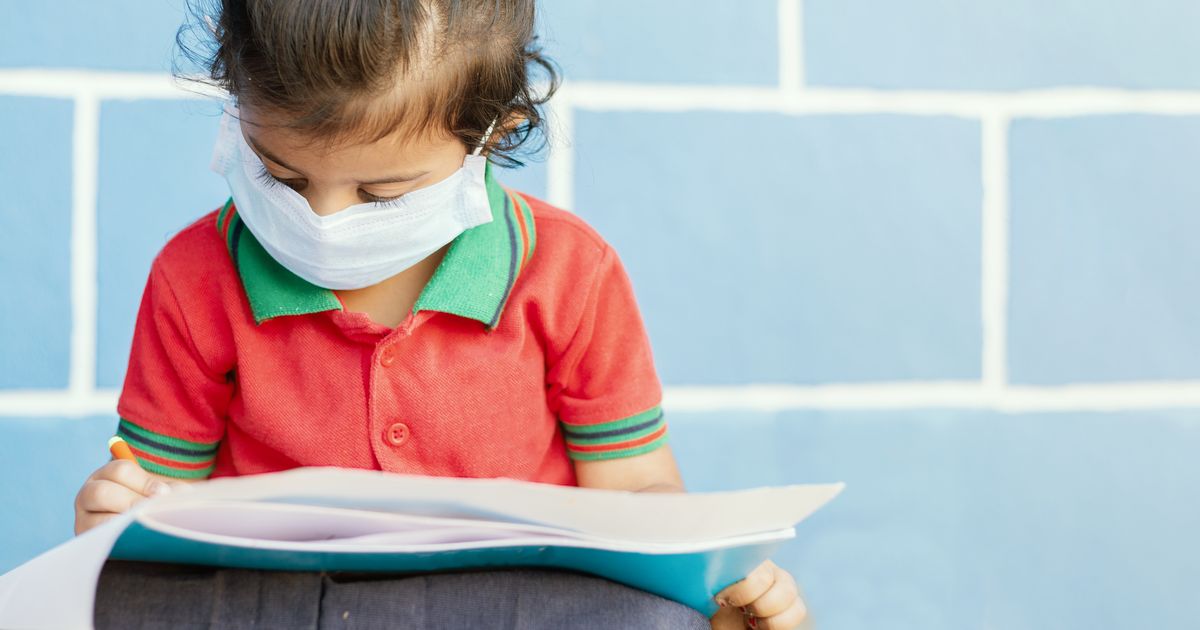
There are no good choices for parents right now. Thanks to a recent surge in coronavirus infections in the U.S., it’s unsafe to send children and teachers back to school. Faced with the daunting prospect of juggling work, caregiving, and distance learning, parents are scrambling for solutions.
That’s evident in the frenzy on Facebook. Private groups have popped up in an effort to coordinate “pandemic pods” that supplement or replace distance learning. Parents are assembling small groups of children and pooling their cash to offer tutors or teachers a professional salary. Some are even rushing to construct miniature buildings in the backyard to temporarily house their pods.
Never mind that some of these arrangements might violate shelter-in-place orders that advise against mingling households. This is what desperation looks like. This is what happens when the Department of Education refuses to provide guidance to schools and educators and instead lets parents fend for themselves. Naturally, every parent will try to create a world in which their child suffers as little as possible, and those with resources will be most successful.
You can’t begrudge parents for working outside the public school system to solve a problem created by an incompetent government. Yet children in pandemic pods are likely to flourish as kids whose parents have fewer resources may struggle, worsening inequality that plagues American education. In the wake of Black Lives Matter protests, which plenty of white parents joined with conviction, it is particularly jarring to see people with a long list of privileges dive headlong into pod planning without openly considering whether children who aren’t their own will be left behind.
The question of equity has come up in the Facebook groups, sometimes leading to controversy and closed comments. There are, however, straightforward ways for privileged parents to address this critical issue without feeling guilty.
First, we shouldn’t expect parents to reduce the inequality of this moment by forgoing in-person education or caregiving support for their own children. For Nikolai Pizarro, an educator and homeschooling-unschooling consultant in Atlanta who formed the BIPOC-led pandemic pods and microschools Facebook group, parents should feel empowered to both provide for their own child’s needs while also contributing to more equitable options for children with less access to learning opportunities and support.
“We have to hold space for all of it,” says Pizarro, who’s been organizing webinars on homeschooling for Black and brown families through her Instagram account Raising Readers.
“We have to hold space for all of it.”
Pandemic or not, she recommends keeping children enrolled in a public school, if possible. When parents pull their kids from a public district, state and federal dollars based on attendance can go with them, exacerbating funding shortfalls that disproportionately affect Black and brown children. Pizarro, who withdrew her son from public school in 2013 after a traumatic learning experience, says parents who want to assemble a teacher-led pod could potentially stay enrolled by doing the minimum to meet state attendance and learning requirements.
Many schools, however, haven’t told parents how distance learning will work in the fall or for how many hours it’ll take place. That’s creating panic and confusion, with parents taking the gamble of forming a full-time pod and hiring a teacher, rushing to make plans without essential information like class rosters, schedules, and expectations. Creating inclusive, equitable pods without these details won’t work. Schools should play a critical role in identifying and assessing the needs of the most underserved children, and parents building pods can be responsive to those needs if they wait for such guidance.
Sensitive outreach to families can happen via class list-serves and Parent Teacher Associations, which can publicize pod opportunities, ideally in different languages and accessible formats, as well as private conversations amongst parents.
To include a child with fewer resources, avoid a condescending or self-congratulatory invitation. Instead, acknowledge that your child will benefit greatly from being with peers of diverse backgrounds. To make the pod accessible, consider a sliding scale as well as transportation, child care, and meals, all of which public schools routinely provide to students.
Just offering a subsidized spot to a student grappling with many disadvantages isn’t equity but “pseudo-charity,” says Tasha C. Ring, a credentialed teacher and education consultant. As founder of Meridian Learning, an organization in Cincinnati that advocates for and organizes microschools — small classrooms that long preceded pandemic pods — Ring says collaboration with local schools and community organizations to provide resources for families is key to creating holistic support for children.
Pizarro also recommends humility and transparency: If offering resources to a family, briefly explain your intention, ask if that’s welcome assistance, and accept, without defensiveness, if their answer is no.
There are alternatives to building equity aside from expanding a pod, including contributing to mutual aid funds or scholarships for parents who need educational or child care support; donating to PTAs in schools with less funding and resources; starting exchanges to ensure that every household has access to materials like books and art supplies; hiring a younger, capable teacher from the local community with a non-traditional path in education; advocating for and including children with different abilities and independent educational programs (IEPs) in pod and school-year planning; and, of course, committing to equity beyond the pandemic.
Practically speaking, each of these actions represents another item on the to-do list for parents who are already overwhelmed. They also represent a more just version of pandemic schooling. While parents shouldn’t have to fight even harder for educational equity because the government has abandoned its responsibility to serve them and their children, those with various privileges, including wealth, time, and education, are best positioned to make a difference.
As Pizarro effectively argues, everyone benefits when, instead of becoming consumed by guilt over advantages others may not have, we focus on each other’s humanity and sharing resources so that all of our children thrive.
